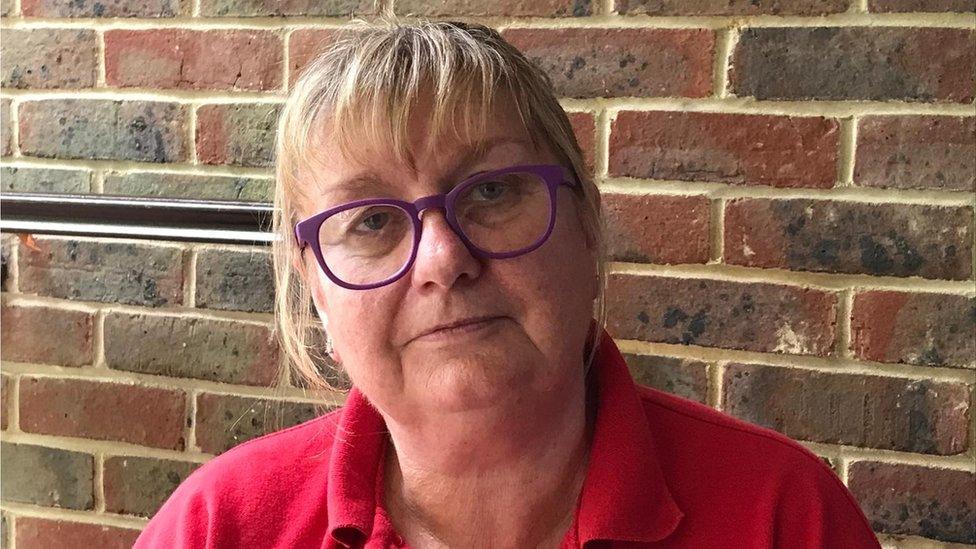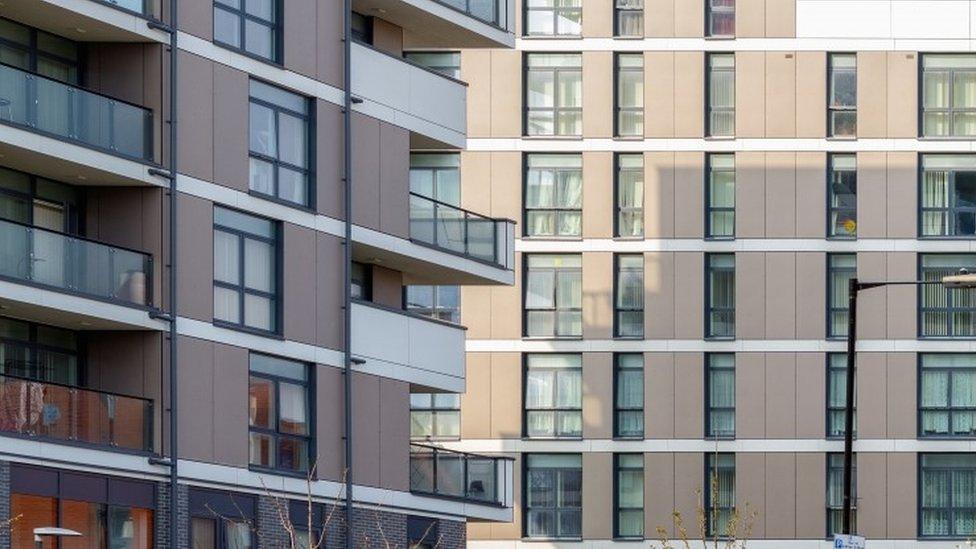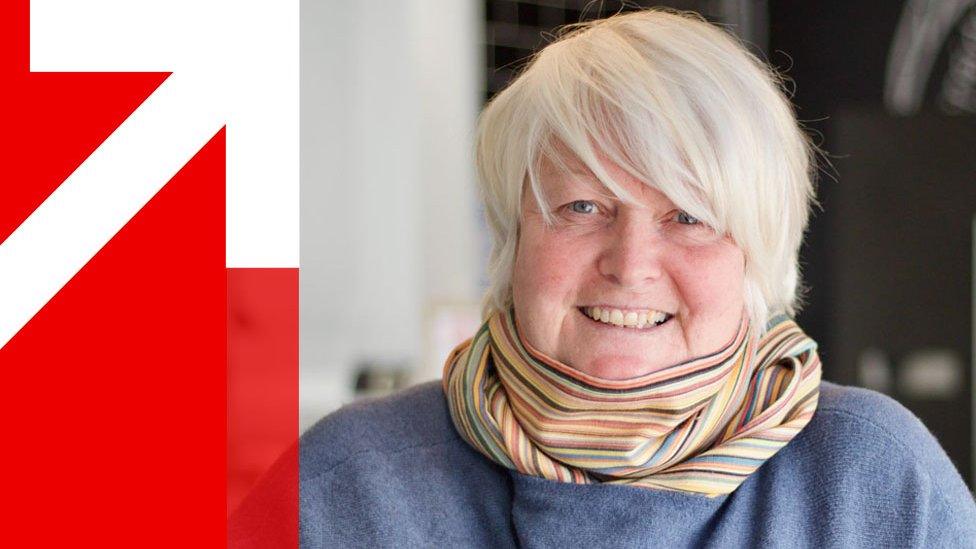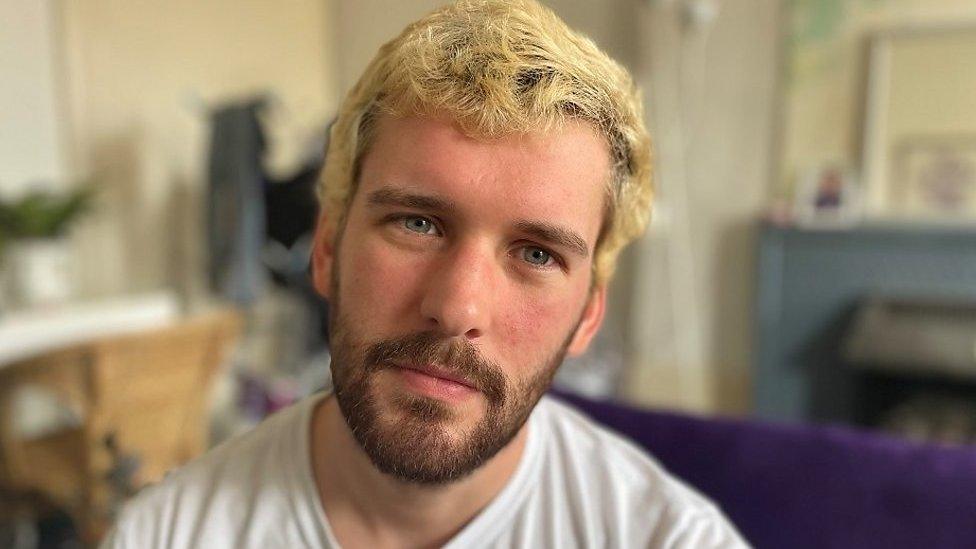Cost of living and rent 'recipe for disaster for young people'
- Published

Shelter caseworker Jenny Lamb says young people often live in less secure accommodation
Young people face a "surge in homelessness" amid the cost-of-living crisis, a leading charity has warned.
Shelter says it gets more than 1,000 calls every day to its emergency support helpline.
So far this year, according to its latest figures, 40% of those have come from 16 to 34-year-olds.
A case worker at Shelter's Sheffield call centre tells BBC Newsbeat rising rents and living costs are "a recipe for disaster for young people".
Olivia Dunphy, 25, and colleague Jenny Lamb, 31, are among the people who pick calls from people looking for support.
'Always do something'
They say they've noticed more people calling for help after exhausting existing options.
"It can get quite disheartening," Olivia says.
"There is always something you could do for someone, and even just listening to someone is helpful to them."
Taking calls from people her age in desperate situations is "really hard", Olivia says.
"There are cases that hit closer to home, especially for me, like I'm bisexual.
"I've had a lot of calls where people are living with homophobic family members, or homophobic flatmates.
"They really want to escape that, but they just can't, because they can't afford to."

Olivia says there's always something you can do for people, even if it's just listening.
Jenny says the rising cost of living has "intensified" the usual obstacles young people face, including accommodation, pay and job stability.
According to Shelter, the proportion of callers under 34 who were at risk of homelessness has risen by 10%.
The charity says more and more people tell them the cost of living is making their situation even harder.
What can you do about rent increases? Watch the BBC's Lora Jones tell you, in a minute.
'Heartbreaking'
Brandon was kicked out of his home and found himself living on the streets just over a month ago.
"There was a lot of violence, it was a very volatile home," he says.
"Being on the street and homeless was very rough."
"I didn't know where the next meal would come from, or where to sleep.
"It was heartbreaking leaving home because that's where I've lived for so many years, and now not being there anymore, it still haunts me to this day."
Allow YouTube content?
This article contains content provided by Google YouTube. We ask for your permission before anything is loaded, as they may be using cookies and other technologies. You may want to read Google’s cookie policy, external and privacy policy, external before accepting. To view this content choose ‘accept and continue’.
The council told Brandon it was not prepared to help "in any way" and it would be up to social services.
"At that point in time, I was thinking that I don't know what I'm going to do because social services weren't helping either," Brandon says.
So he called Shelter.
"The person I was talking to was very helpful. He tried everything he could, and eventually it worked. He helped me find where I'm living now."
Brandon says he's in a much better place now.
"Whether you need to talk to people, or just relax and have a nice chat, and it's a lovely home."

Analysis
By BBC Newsbeat cost of living reporter Sam Gruet
In recent conversations I've had with Newsbeat listeners the price of rent and issues with accommodation come up continuously.
Some can't afford to leave home, others are being forced to move back in with family.
Meanwhile, the rising price of petrol, food and nights out - and wages failing to keep up - has left many struggling.
Those I've spoken to often don't have savings and some can't rely on parents or siblings to support them.
It means services like food banks - which one in 10 Newsbeat listeners say they've used - and helplines like Shelter are becoming stretched.
If you have been affected by the issues raised in this article, help and support is available via BBC Action Line.


Follow Newsbeat on Twitter, external and YouTube, external.
Listen to Newsbeat live at 12:45 and 17:45 weekdays - or listen back here.
Related topics
- Published10 November 2022

- Published21 October 2022

- Published17 October 2022

- Published18 October 2022

- Published6 September 2022

- Published16 November 2021
